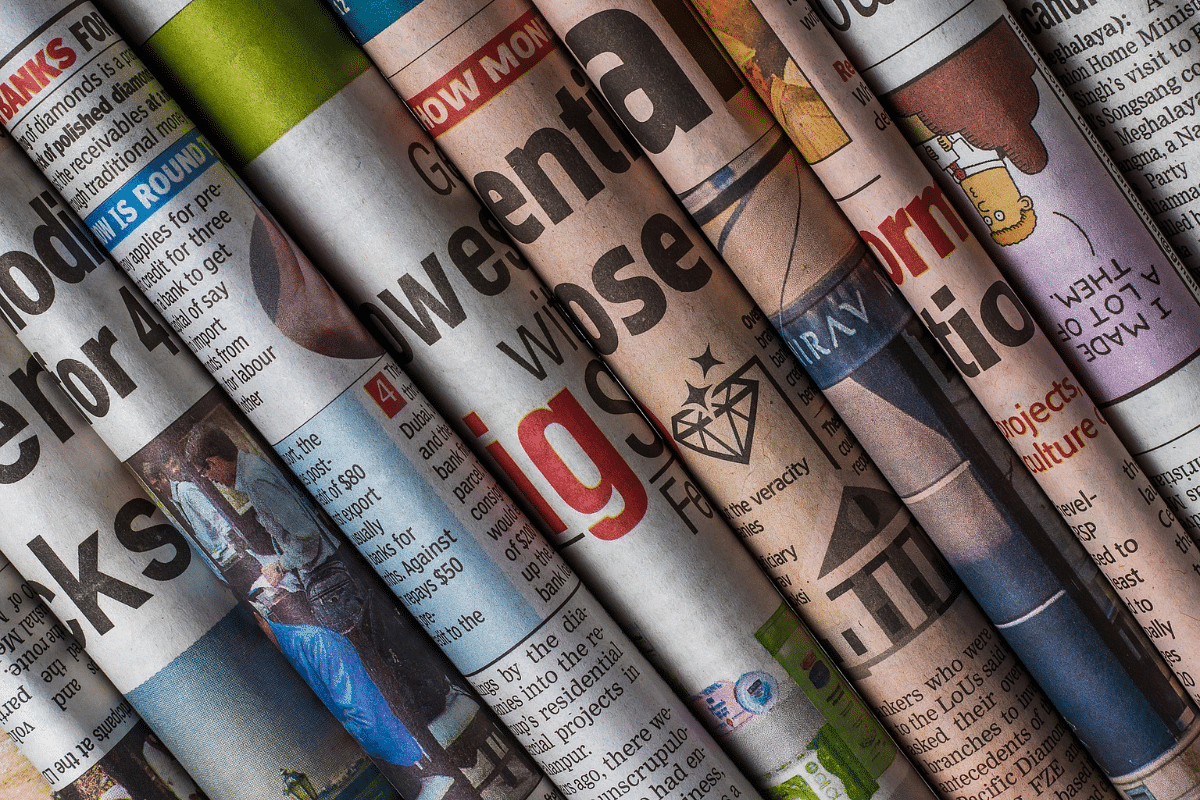Politics
India Drops Places To Rank Lower Than Pakistan, Afghanistan On Press Freedom Index, But Here's Why Such Indices Are Unreliable

Newspapers, image for representation
Global media watchdog Reporters Without Borders has revealed that India is placed 161 out of 180 countries in the 2023 World Press Freedom Index.
While India has slipped on the index, Pakistan has improved its position, ranked at 150, compared to 157 in the previous year. In 2022, India held the 150th rank.
Besides Pakistan, Sri Lanka improved its standing on the index, now ranking 135th, up from 146th in 2022.
The top three countries in press freedom are Norway, Ireland, and Denmark, while the bottom three are Vietnam, China, and North Korea.
Reporters Without Borders, a Paris-based international non-governmental organisation (NGO) with consultative status at the United Nations that advocates for media freedom, issues the World Press Freedom Index annually.
The main purpose of this global ranking is to evaluate and contrast the level of press freedom that journalists and media outlets have in 180 countries and territories during the previous year.
Press freedom, according to the NGO, is "the ability of journalists as individuals and collectives to select, produce, and disseminate news in the public interest independent of political, economic, legal, and social interference and in the absence of threats to their physical and mental safety."
Indian press organisations released a joint statement expressing concern over the country's drop in the index.
"Time for all of us to hang our heads in shame: India slips in World Press Freedom Index, ranks 161 out of 180 countries," Congress leader Shashi Tharoor wrote on Twitter.
Generally, India does perform poorly on global performance indices. The Economic Advisory Council to the PM (EAC-PM) released a report in November last year acknowledging the issue and explaining why.
Main author Sanjeev Sanyal called the methodologies behind these opinion-based indices "opaque and shallow."
The EAC-PM pointed towards four "serious problems" with these methodologies:
They are primarily based on the opinions of a tiny group (three to six people) of unknown "experts."
The questions used are subjective and worded in a way that is impossible to answer objectively even for a country, let alone compare across countries.
There are questions that should be asked, but are excluded. For example, it is relevant to ask for a democracy index if the head of state is elected. However, it is never asked because it would downgrade many European countries as they are constitutional monarchies.
Certain questions used by these indices are not an appropriate measure of democracy across all countries. For example, there is an index on direct democracy which is irrelevant for large democracies.
These indices cannot be disregarded as mere opinions as they find their way into concrete factors such as sovereign ratings via World Bank’s World Governance Indicators (WGI), based on a combination of several such indices.
The EAC-PM thus suggests that the Indian government requests the World Bank to demand transparency and accountability from think tanks that provide inputs for the WGI.
Over time, independent think tanks in India should be encouraged to come up with their own indices so that comparative indices are available to break the monopoly of a handful of Western institutions.
Introducing ElectionsHQ + 50 Ground Reports Project
The 2024 elections might seem easy to guess, but there are some important questions that shouldn't be missed.
Do freebies still sway voters? Do people prioritise infrastructure when voting? How will Punjab vote?
The answers to these questions provide great insights into where we, as a country, are headed in the years to come.
Swarajya is starting a project with an aim to do 50 solid ground stories and a smart commentary service on WhatsApp, a one-of-a-kind. We'd love your support during this election season.
Click below to contribute.
Latest